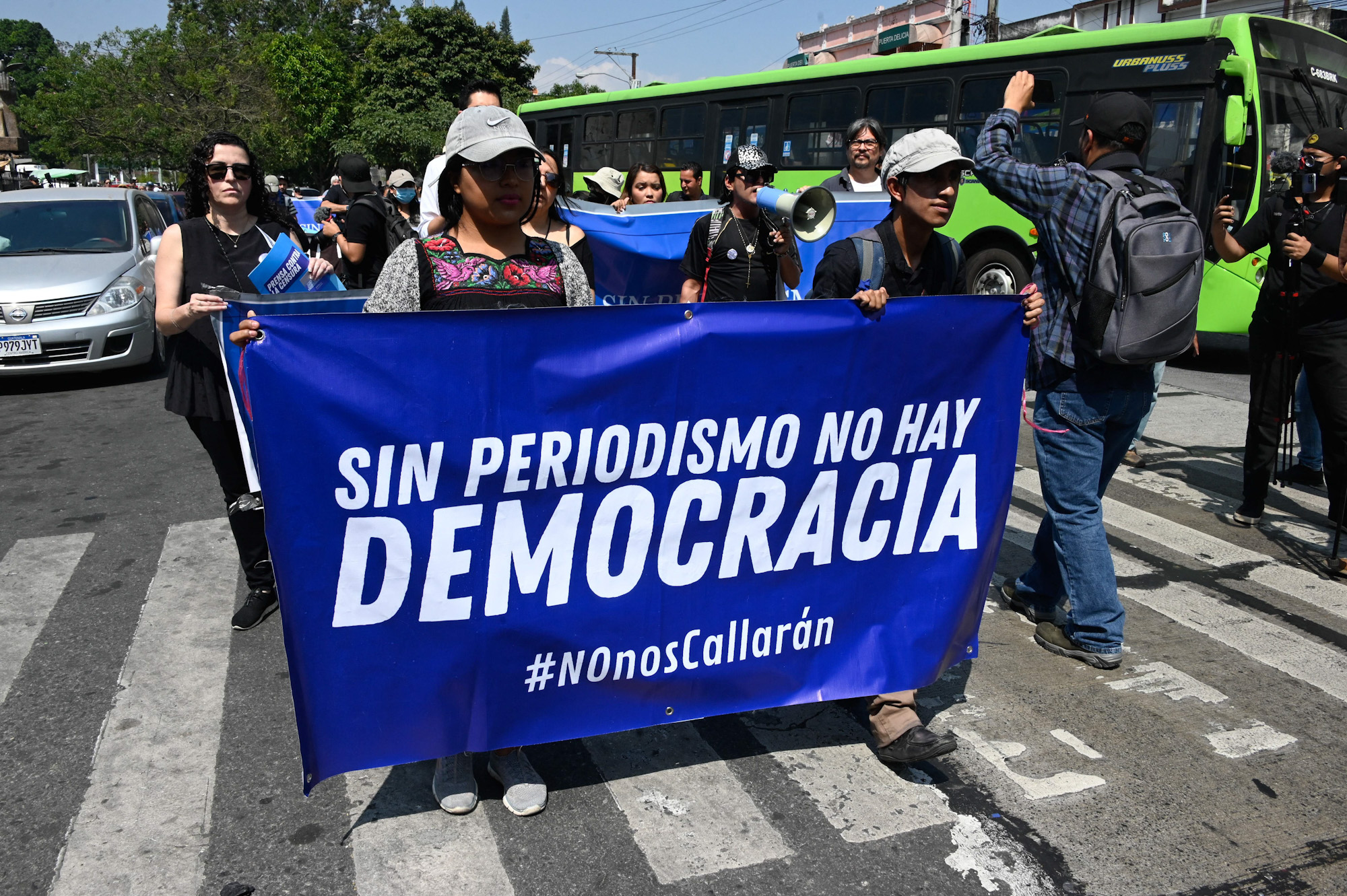Lessons and Challenges in Countering Foreign Authoritarian Influence in the Information Space: A View from Latin America

From Buenos Aires to Bogota, the information environment across Latin America and the Caribbean (LAC) is increasingly replete with authoritarian-driven narratives from domestic and foreign actors alike, often in concert. This has implications far beyond the information space, as access to reliable information, pluralistic media, and freedom of expression are foundational elements of democracy and key to ensuring civic space for activism and citizen mobilization. To shore up democratic resilience in response, organizations that protect and promote democracy must go on the offensive by dismantling autocratic narratives and taking the initiative to protect information integrity.
Authoritarian Information Manipulation in LAC
In Latin America, the collaboration between global autocracies and local authoritarian or populist governments, both displaying illiberal tendencies albeit in distinct forms and degrees, heightens the influence and presence of Russia and China, who are significant foreign illiberal actors in the region. This collaboration is bolstered by the vulnerability of Latin American economies and institutions. Frequent economic crises and instability have created an ideal environment for the expansion of autocratic influence. While Latin American boasts diversity in public opinion, media, and academia, support for liberal democracy is falling, driven by populism on both the left and right sides of the political spectrum and facilitated and exacerbated by Russia and China, who have deftly attached their own narratives to existing anti-democratic and anti-U.S. sentiments that resonate among local populations.
In this context, the extensive human and material assets of the Chinese Communist Party (CCP), encompassing investments, trade, infrastructure development, political party and journalist training, and a wide-scale effort to influence the information space, are utilized to advance its objectives in Latin America. The PRC’s efforts have given them local credibility to shape perceptions around China’s engagement the region, as its narratives speak to local concerns, using local voices, in local languages.
In Russia’s case, its comparatively more advanced and adaptable sharp power tools have positioned the country favorably in Latin America. While Russia’s direct presence in the Latin American academic sphere is less pronounced compared to China (for example, Russian Houses of Culture are not easily comparable to Confucius Institutes), the significant and influential illiberal ideological alignment with the official Russian narrative is notable within public opinion, due in large part to the popularity of Russian state-sponsored media Sputnik and RT. This was particularly evident in region-wide coverage of the Russian invasion of Ukraine, which was dominated by Russian state and allied media, such as Telesur, which is sponsored by the governments of Venezuela, Cuba, and Bolivia. A recent investigation by Gobierno y Analisis Politico AC (GAPAC)2 revealed a convergence in the official narratives of Russia and Venezuela in media outlets RT and Telesur, which have become conduits for spreading propaganda across Latin America.3
The infusion of the information space with illiberal rhetoric, advanced by proxies in media, academia, business, and policy working together and separately, poses unique challenges and requires a collective response.
Building Democratic Resilience
GAPAC’s work around Latin America has revealed the key pillars of such a response: information, innovation, and articulation. Information entails evidenced-based understanding and awareness of how information is manipulated and the various domestic and foreign drivers. It is foundational for responding to – and debunking propaganda and false information. Innovation is crucial for discerning optimal strategies and effective practices, whether within our own nations or abroad, to protect the information sphere and bolster democratic resilience. Finally, articulation is a sine qua non for CSOs to act as a cohesive network with a joint strategy – to pool knowledge and resources in lieu of isolated and fragmented campaigns.
In the information domain, it is vital to understand how autocratic cooperation is undermining fundamental freedoms and information integrity, and its resultant impact on civil space. Such an understanding must take into account the regime type, relative level of social control it exerts, and its capacity for extending this control and influence beyond its borders. The obstacles posed by populist governments (e.g., Mexico and others), competitive authoritarian regimes (e.g., El Salvador), or closed dictatorships (e.g., Cuba, Nicaragua, and Venezuela) differ significantly. Additionally, challenges differ within democratic regimes, contingent on the strength of democratic support among the public.
On innovation, it is essential to determine effective means to engage a disengaged public in meaningful ways. To complete with China and Russia, it is necessary to improve the quality of TV programming, combining programs that provide critical analysis of the socioeconomic and political problems that affect average Latin Americans, with attractive entertainment programs. It is also vital—given the deterioration of democratic institutions and the influence of disinformation—to promote examples of civic attitudes and intellectual approaches that reinforce democratic values and institutions in social media platforms. This requires creative advice from multidisciplinary teams and the permanent monitoring of public opinion and its demands.
This all requires ongoing investment in democracy that delivers. If the accumulated problems that face Latin America’s fragile democracies, such as social cohesion, sustainable and inclusive development, provision of public goods and services, transparency, and the rule of law, among many others, are not resolved, these democracies will always be vulnerable to the seduction of internal populism and the sharp and soft power influence of foreign autocracies.
Lastly, articulation necessitates local, regional, and global democratic unity. If dictatorships cooperate with each other, from a state-driven perspective, we must also do so as civic and political actors in pursuit of shared goals and values. Such efforts must nevertheless be locally driven and responsive to local needs and realities. The challenge is to build strong alliances based on values and minimal common agendas that can have a direct impact on democratic quality in our countries.
Top